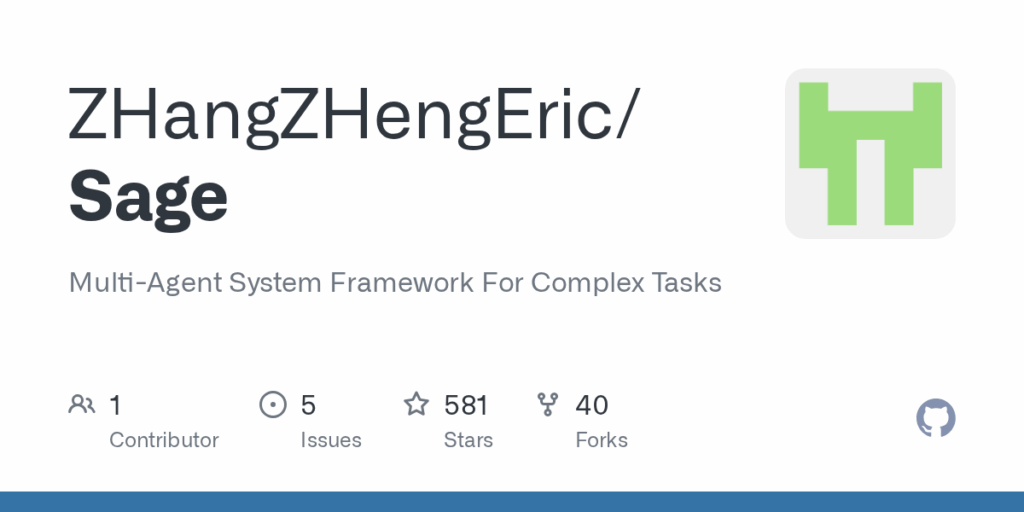Sage
Basic Information
Sage is a production-ready, modular multi-agent orchestration framework designed to break down complex problems into manageable subtasks and coordinate specialised agents to solve them. The repository provides the core framework, runtime components, and example web application to run multi-agent workflows that support both in-depth analysis and rapid execution modes. It includes an agent pipeline (analysis, planning, execution, observation, summary) integrated with resource and state managers, a plugin-based tool system with MCP server support, and a modern React + FastAPI demo for interactive use. The project targets developers and teams who need deterministic, extensible agent orchestration with runtime configuration, token and cost monitoring, and enterprise features such as logging, error recovery, and hot-reloadable tools.








